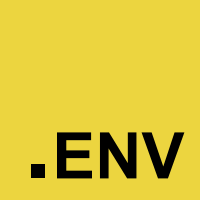Package Exports
- envars
This package does not declare an exports field, so the exports above have been automatically detected and optimized by JSPM instead. If any package subpath is missing, it is recommended to post an issue to the original package (envars) to support the "exports" field. If that is not possible, create a JSPM override to customize the exports field for this package.
Readme
envars — environment variables loader

Envars is a Node.js module based on dotenv
that loads and decrypts environment variables from .env.* files into
process.env.
It allows to store application secrets in .env.* files encrypted making these
files safe to be committed into a source control repository.
How to Install
# with NPM
$ npm install envars --save-dev
# with Yarn
$ yarn add envars --devGetting Started
Suppose you have local (local development), test (test/QA), and prod
(production) application environments. For each of these environments you would
create a separate .env.{envName} file in your project. For example:
# .env.local
APP_ORIGIN=http://localhost:8080
PGHOST=127.0.0.1
PGDATABASE=example_local
PGUSER=postgres
PGPASSWORD=# .env.test
APP_ORIGIN=http://test.example.com
PGHOST=34.72.79.184
PGDATABASE=example_test
PGUSER=postgres
PGPASSWORD=enc::mxJIZ9/1uV/NDgwT:Seheo3XvJlbllbLg:M5kwPZ3XYK14rbUctbxN/3z18Q==# .env.prod
APP_ORIGIN=http://example.com
PGHOST=34.72.79.1
PGDATABASE=example
PGUSER=postgres
PGPASSWORD=enc::oiF6UkepsP2l41Mt:Et1jQuh7Vw3X4UpA:Qv3Lhr45ZPA0jga5QKeg917UDg==While the .env.local file, that is used during local development, will
contain all the configuration settings in plain text, the other two may have
some secret values such as live database password, JWT secret, etc. Since these
values will be encrypted, it would be totally OK to commit these files into the
source control repository without compromising security.
You can update and read secrets by using the envars CLI:
# Encrypt and save `PGPASSWORD` variable into the `.env.prod` file
$ yarn envars set PGPASSWORD "S^6wh:rruq!MS(Xd" --env=prod --secret
# Read and decrypt `PGPASSWORD` variable from the `.env.prod` file
$ yarn envars get PGPASSWORD --env=prodGet more information by running yarn envars --help.
From there on, loading and passing the environment variables into your app
would be as simple as requiring envars/config module at run-time.
# Load environment variables when launching a Node.js app
$ node -r envars/config ./server.js
# Load environment variables when launching a Node.js app via Nodemon
$ nodemon -r envars/config ./server.js
# Load environment variables for "prod" environment instead of "local" (default)
$ APP_ENV=prod nodemon -r envars/config ./server.jsAlternatively, you can load environment variables programmatically:
import { config } from "envars";
config({ env: "prod" });Q&A
❓ In which order the .env files are being loaded?
1) .env.{envName}.override
2) .env.{envName}
3) .env.override
4) .envWhere {envName} is the name of the target environment (defaults to local).
❓ How to check which environment is being used at run-time
By reading the value of process.env.APP_ENV.
❓ Which files needs be included into the source control?
As long as you store secrets encrypted it is safe to commit all the .env.*
files into the source control repository except for the .env.*.override and
.env.override files.
❓ What's the purpose of .env.*.override files?
Sometimes it's required for a developer being able to override some of the configuration settings without pushing these changes to the upstream repository. These files also used to store encryption/decryption master password.
❓ How to customize where it looks for .env.* files?
You can customize it by adding envars settings to package.json:
{
"name": "app",
"dependencies": {
"envars": "x.x.x",
...
},
"envars": {
"cwd": "./env", // defaults to "." when omitted
"default": "dev", // defaults to "local" when omitted
"encoding": "latin1", // defaults to "utf-8" when omitted
"debug": true // defaults to "false" when omitted
}
}Related Projects
- GraphQL API Starter Kit — monorepo template, pre-configured with TypeScript, GraphQL.js, React, and Relay
- Node.js API Starter Kit — Node.js project template (PostgreSQL, Knex, OAuth 2.0, emails, Cloud Functions)
How to Contribute
Please create a PR or send me a message on Discord.
License
Copyright © 2021-present Kriasoft. This source code is licensed under the MIT license found in the LICENSE file.
Made with ♥ by Konstantin Tarkus (@koistya, blog) and contributors.




